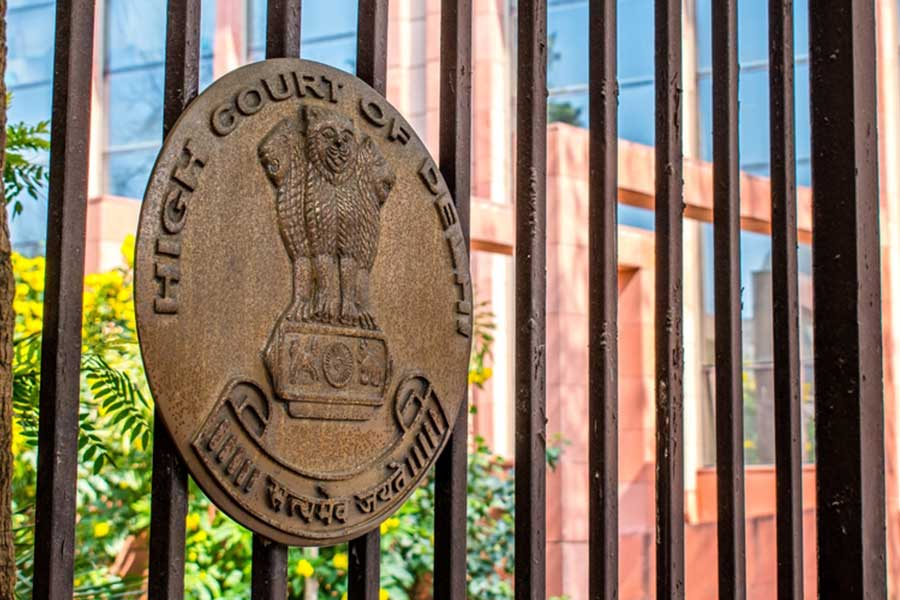Mere pendency of a criminal case does not automatically disqualify a person from exercising his right to seek long-term opportunities abroad, the Delhi High Court has noted.
The court also directed the passport authorities to issue within two weeks a police clearance certificate (PCC) to a man, who has pending criminal cases and needs to submit a document to Canadian authorities to set up a business there.
Noting that the rights and interests of the petitioner must be balanced with the authorities' obligation as a sovereign entity, the high court directed that a PCC be issued to the man explicitly mentioning the pending criminal cases against him as well as the fact that he has complied with the Regional Provident Fund Commissioner's (RPFC) order by making the required deposit.
“This would provide complete transparency to the Canadian authorities for their assessment of his visa application. The PCC shall be issued in two weeks’ time from today,” Justice Sanjeev Narula said in an order passed on October 1.
The court noted that the sole ground for denying PCC to the man was the existence of pending FIRs against the petitioner, as per the report of Delhi Police.
“However, it must be emphasised that mere pendency of a criminal case does not automatically disqualify an individual from exercising his right to seek long-term opportunities abroad.
“While respondent No. 1 -- the Ministry of External Affairs -- is correct to point out its obligation to provide accurate information to the foreign authorities, this responsibility does not extend to unjustly curtailing the petitioner's right to apply for a long-term visa,” it said.
The Ministry of External Affairs and Delhi Police were represented through senior panel counsel Farman Ali.
The petitioner, an Indian national with a valid passport, approached the court challenging the refusal by the authorities to issue him a PCC which was required for applying under the Start-up Visa Programme in Canada, where he intended to set up a business venture.
The plea said according to Canadian visa regulations, an applicant must submit a PCC from their country of residence to set up a business in Canada.
The petitioner, along with his proprietary concern, was facing two FIRs registered with the Delhi Police in 2013, based on complaints lodged by officials of the Employees' Provident Fund Organisation (EPFO), alleging that while he deducted provident fund contributions from the wages of employees working at DMRC and NPL sites, he failed to deposit the amount in accordance with the provisions of the Employees' Provident Funds and Miscellaneous Provisions Act.
The RPFC has assessed an amount of Rs 7.48 lakh to be deposited by him which he paid in 2019.
The petitioner’s counsel submitted that even if the PCC indicated the pending FIRs against him, he would be able to fulfil the requirement of submitting the PCC and apply for visa, and therefore his right to travel abroad would not be prejudiced.
The high court also noted that the PCC indicates that the applicant does not have a criminal record, essentially serving as an assurance by the State to a foreign country that the applicant is not involved in any ongoing criminal proceedings.
However, the regional passport office can only issue a PCC if it receives a 'clear' police verification report from the relevant authorities.
In this case, the court said the petitioner has a valid passport and there are no restrictions on his travel, adding that his right to work and freedom of movement must not be unjustly restricted solely on the existence of these FIRs.
This relates to his fundamental right under Article 19(1)(g) to engage in an occupation or business and the petitioner, like any other Indian citizen, holds the constitutional right to pursue any lawful business or trade both within and outside the country as permissible.
The court noted that even though the State has the authority to impose reasonable restrictions on the fundamental rights of a citizen under Article 19(6), denying a PCC to the petitioner due to mere pendency of FIRs constitutes an unreasonable restriction.
“Therefore, it would be unjust to impose a blanket restriction on his efforts to secure a visa solely based on the pendency of a case,” it said, adding that the issuance of the PCC will neither impact the ongoing criminal proceedings, nor confer any undue advantage upon the petitioner.
Except for the headline, this story has not been edited by The Telegraph Online staff and has been published from a syndicated feed.











